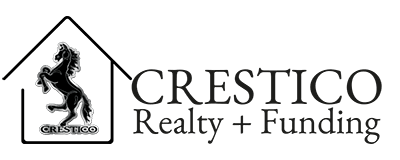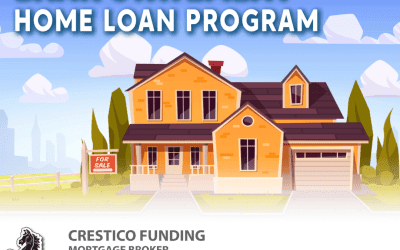Crestico Insights & Updates
Understanding Current Mortgage Rates: Your Guide to Buying or Refinancing
Unlock the truth about mortgage rates! Discover 7 essential secrets to save money and make smarter home-buying decisions. Don't miss these expert tips.
7 Innovative Mortgage Solutions Every Fix and Flip Investor Needs
Discover 7 innovative mortgage solutions for fix and flip investors. Boost your profits with creative financing options tailored to your real estate goals.
Unlocking Homeownership: How Bank Statement Loans Empower the Self-Employed
For many self-employed professionals and business owners in Los Angeles, the path to homeownership feels blocked by traditional lending rules. Your tax returns, filled with legitimate business write-offs, rarely reflect your true purchasing power, leading to frustrating denials. But there is a powerful alternative designed for the modern entrepreneur.A bank
Pay Off Your Mortgage 10 Years Sooner, Without Straining Your Monthly Budget
Pay off your mortgage 10 years sooner! Explore clever tactics like refinancing, bi-weekly payments, and recasting that won't strain your budget. Become mortgage-free faster.
Unlock Your Real Estate Empire: The Investor’s Guide to DSCR Loans
Supercharge your property portfolio with investor DSCR loans! Discover how cash flow-based financing, not personal income, can unlock your next real estate investment. Learn DSCR calculation, benefits, and requirements.
7 Surprising Perks of Choosing a Mortgage Broker
Discover 7 unexpected benefits of using mortgage brokers. Unlock better deals and expert guidance for a smoother home-buying experience.
Should You Take That Forbearance Every Homeowner Is Hearing About?
What is a Forbearance? Should you consider it? When this program was first announced by congress it was very frustrating for me to see all the misinformation that was being promoted by those who weren’t in our industry. It has also been frustrating for me to see the misinformation that…
California Homebuyers: Limited Time Only: Tax Credit!
Californians have a brief window of opportunity to receive up to $18,000 in combined federal and state homebuyer tax credits. To take advantage of both tax credits, a first-time homebuyer must enter into a purchase contract for a principal residence before May 1, 2010, and close escrow between May 1,
Is a 30 year fixed mortgage loan a waste of money?
Some people may say yes! Upward sloping yield curve. It’s important to understand that due to the time value of money and inflation, the longer you borrow the higher your interest rate. If you borrow money from me today to pay me back tomorrow, I won’t charge you interest. But, if
22935 Ventura Blvd.
Suite 201
Woodland Hills, CA 91364
(818) 784-2929
Understanding Current Mortgage Rates: Your Guide to Buying or Refinancing
Unlock the truth about mortgage rates! Discover 7 essential secrets to save money and make smarter home-buying decisions. Don’t miss these expert tips.
7 Innovative Mortgage Solutions Every Fix and Flip Investor Needs
Discover 7 innovative mortgage solutions for fix and flip investors. Boost your profits with creative financing options tailored to your real estate goals.
Unlocking Homeownership: How Bank Statement Loans Empower the Self-Employed
For many self-employed professionals and business owners in Los Angeles, the path to homeownership feels blocked by traditional lending rules. Your tax returns, filled with legitimate business write-offs, rarely reflect your true purchasing power, leading to frustrating denials. But there is a powerful alternative designed for the modern entrepreneur.
A bank statement loan allows you to qualify based on your actual cash flow, analyzing 12 to 24 months of deposits to prove your income. This modern approach empowers you to get the credit you deserve, unlocking the door to the home you’ve earned. Stop letting outdated paperwork define your financial future and discover how your real income can get you the keys to your new Los Angeles home.
Pay Off Your Mortgage 10 Years Sooner, Without Straining Your Monthly Budget
Pay off your mortgage 10 years sooner! Explore clever tactics like refinancing, bi-weekly payments, and recasting that won’t strain your budget. Become mortgage-free faster.
Unlock Your Real Estate Empire: The Investor’s Guide to DSCR Loans
Supercharge your property portfolio with investor DSCR loans! Discover how cash flow-based financing, not personal income, can unlock your next real estate investment. Learn DSCR calculation, benefits, and requirements.
7 Surprising Perks of Choosing a Mortgage Broker
Discover 7 unexpected benefits of using mortgage brokers. Unlock better deals and expert guidance for a smoother home-buying experience.
COVID-19, SBA Grants and Loans, Mortgage Payment Forbearance and Deferments
Last week was a profound time of change for most businesses. I wanted to share important updates with you that I have shared with my family,...
Should You Take That Forbearance Every Homeowner Is Hearing About?
What is a Forbearance? Should you consider it? When this program was first announced by congress it was very frustrating for me to see all the...
Fannie Mae’s Support for Distressed Homeowners: Find Help Today!
Fannie Mae is beginning to implement some changes to its policies regarding distressed homeowners. The institution is now moving towards helping...


